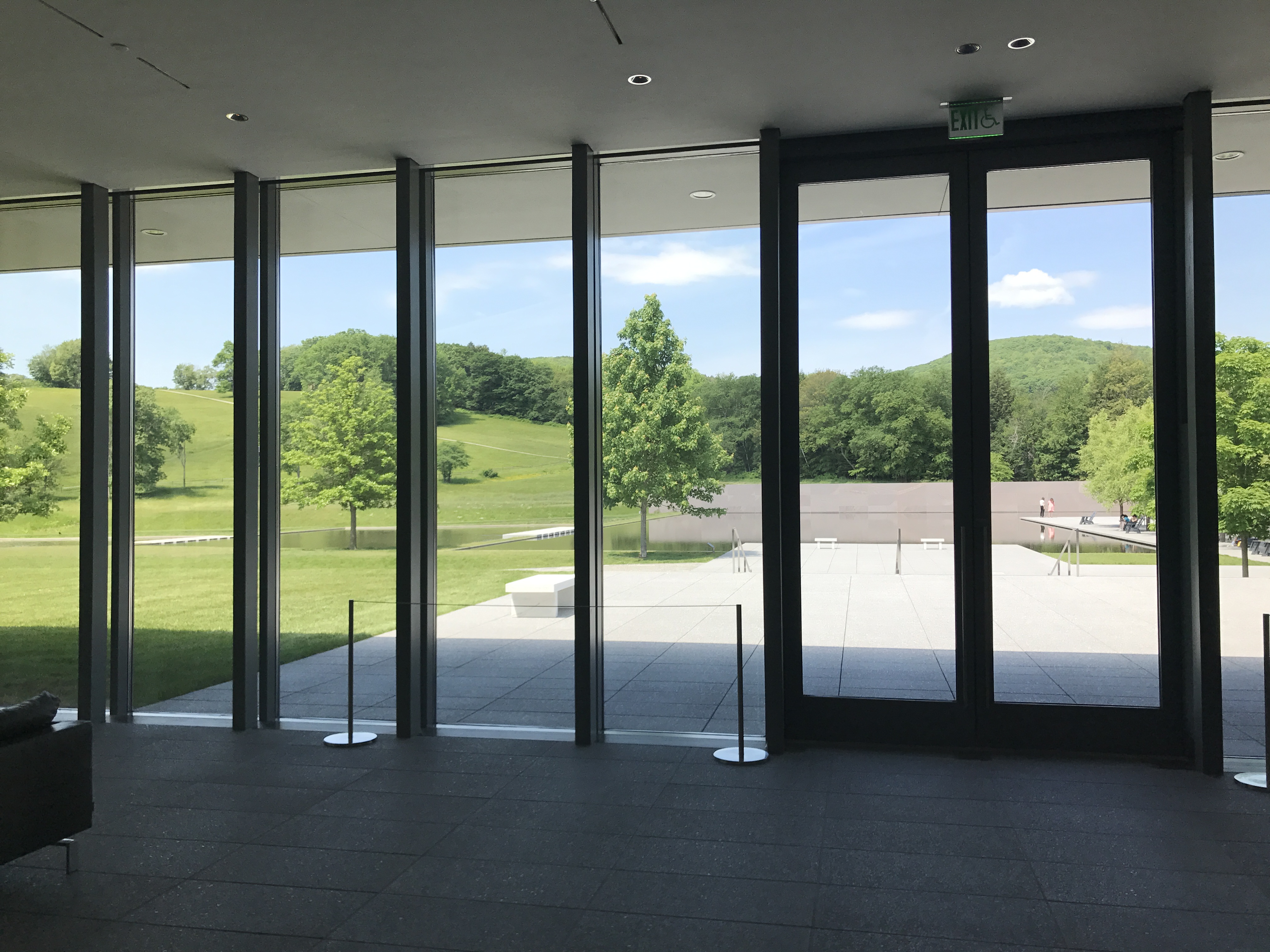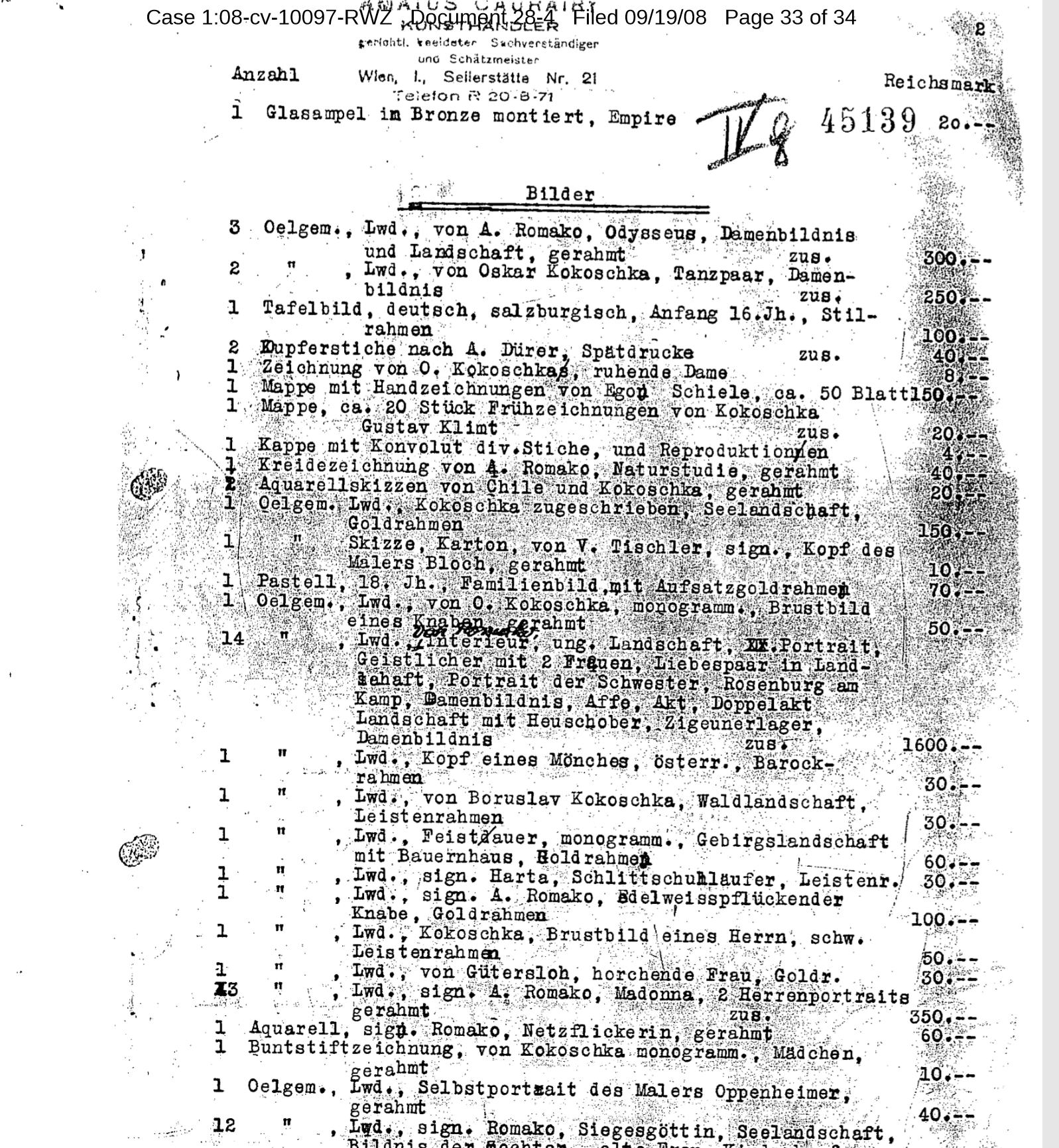Since online auctioneer Paddle 8 filed for bankruptcy protection in March, creditors of the company have begun filing their notices of claim in the bankruptcy case. One thing on which the creditors all seem to agree is that the current assets of Paddle 8 will be insufficient to cover its debts by a considerable margin. Paddle 8’s lenders and commercial landlord are by far the largest creditors, and standing out from the crowd will be difficult. The key for many consignors, therefore, will be whether they can convince the Bankruptcy Court that the money they seek is somehow distinct from the unsecured claims of the bulk of creditors. Based on filings to date, there is already considerable disagreement about the limited scope of New York’s consignment statute (N.Y. Arts & Cult. Affairs Law § 12.01) (NYACAL), the interpretation of which will be important to this and presumably many other bankruptcies to come. NYACAL protects consignment sale proceeds under certain circumstances when the artist of the work in question is the consignor—but not otherwise. For the charitable consignors, they may end up holding the bag.
Paddle 8 Creditors Battle Over Scope of New York Consignment Law
Topics: Bankruptcy Code, consignor, New York Arts & Cultural Affairs Law, Paddle 8, New American Cinema Group, UN Women National Committee UK, NYACAL, Lift Los Angeles, Penumbra Foundation
My column in Apollo Magazine on museums and deaccessioning in crisis
Continuing our ongoing tracking of the effect of the Covid-19 lockdown on museums and arts organizations, I penned a column in Apollo magazine today. You can read the full article here (subscription required for more than three articles), the first paragraph is reprinted here as a teaser:
One key question for museums boards, management, and their supporters to ask right now is this: what do they actually want to accomplish when the Covid-19 crisis subsides and the lockdowns end? Is a museum its collection, its location, its staff or its visitors? Until recently we had the comparative luxury of asking these questions one museum crisis at a time. Should a small museum (for example, the Berkshire Museum in Pittsfield, Massachusetts) survive at all costs without the collection that created its very importance? Should it seek a better home for its collection but perhaps lose some of its unique character or even its individual existence (see the Corcoran Gallery of Art’s merger with the National Gallery of Art in Washington, D.C.)? Or should it evolve in a way that is perhaps contrary to its founders’ specific desires (the Barnes Foundation’s move to Philadelphia from the truly sui generis yet remote home in Lower Merion created by Dr Barnes)?
Now, with [read more here]
Topics: National Academy Museum, National Gallery of Art, Metropolitan Museum of Art, ICOM, American Alliance of Museums, Philadelphia, AAM, Association of Art Museum Directors, International Council of Museums, Corcoran Gallery of Art, AAMD, Barnes Foundation, Pittsfield, Berkshire Museum, Apollo Magazine, UPMIFA, endowment, Uniform Prudent Management of Institutional Funds
Fate of Museum Collections and Endowments Presents Hard Questions in Hard Times
Since analyzing the likely consequence of gallery and auctioneer insolvencies last month, we have been keeping an eye on how the economic crisis borne of the COVID19 pandemic is affecting the art world. Essentially every museum in the world has had to close its doors in the last month, with the previously unimaginable effect of a 100% drop in attendance revenue. Every museum, from the largest and best-endowed to the smallest and cash-strapped, is grappling with how to sustain its people, its mission, and its future. There are no easy answers, but the Association of Art Museum Directors issued yesterday an interesting update to its longstanding ethical guidelines concerning deaccessioning and restricted assets. As I remarked in a conversation with ArtNews yesterday on the topic, the question of what—and who—an endowment and an art collection is for have never been more relevant, or more difficult to answer. When Brandeis proposed to close the Rose Art Museum in 2009 in the midst of the last financial crisis, the effects were long-lasting. I have negotiated considerable specific requirements to gifts on behalf of museums and donors to account for what, before that event, many had not considered. What will this catastrophe, which is already far worse, bring?
Topics: Brandeis, Metropolitan Museum of Art, American Alliance of Museums, Rose Art Museum, Association of Art Museum Directors, International Council of Museums, Museum of Fine Arts Boston, AAMD, Berkshire Museum, North Adams, Mass MoCA, COVID19, Board of Regents, Brian Allen, CARES Act, Financial Accounting Standards Board, Clark Art Institute, National Review
The Taxman Cometh—Christie’s Penalty is the Latest Example of Sales and Use Tax Pitfalls
News broke last week that auction house Christie’s had agreed to pay a $16.7 million fine to the Manhattan District Attorney for failing to collect sales tax between 2013 and 2017. This was surprising in many ways, but a reminder of the lurking dangers of sales and use tax in multi-state and international art transactions. While the variables can seem daunting, the decision-tree of how to account for sales and use tax need not be overly complicated. The Christie’s settlement is an opportunity to review the rules of the road.
Topics: Christie's, Sales & Use Taxes, Dennis Kozlowski, Tyco International, Ltd., Manhattan DA
Ten Years Later—Lessons Learned from the Museum of Fine Arts Boston Kokoschka Case
There has been some renewed interest in the case a decade or so ago involving a claim by the heir of Oskar Reichel’s family to a painting in the Museum of Fine Arts Boston: Two Nudes (Lovers) by Oskar Kokoschka. In response I’ve decided to post an excerpt from my book A Tragic Fate—Law and Ethics in the Battle Over Nazi-Looted Art (ABA, 2017).
It has been suggested that the MFA somehow concealed its rationale or the documentary evidence on the basis of which it concluded that the painting should not be restituted. That is simply not so, however. The MFA’s now-curator of provenance, Dr. Victoria S. Reed, authored and the MFA filed an exhaustive report of the museum’s research into the case, accompanied by primary source documents. Whether one agrees or disagrees with its conclusions, the report has been publicly available for more than eleven years. It’s no secret that I have been complimentary of the MFA’s provenance research and transparency in the case—and I don’t think anyone would accuse me of being unsympathetic to claimants generally.
The key reasons for the MFA’s conclusions that the painting had not been sold under duress included the fact that Oskar Reichel’s sons pursued restitution claims vigorously (and successfully) for both real and personal property, including paintings. They never identified this painting in their claims to looted property, however. In addition, the MFA found—and filed publicly—correspondence from Oskar’s last surviving son Raimund from 1982 that explained that the MFA painting was among those that Oskar had given to Otto Kallir to sell in the USA:
Exhibit 65 to Dr. Reed’s Report
The MFA drew the conclusion, to which there was no specific evidence to the contrary, that this was in contrast to the property that had been taken from Oskar. This is in the context of the general presumption of invalidity for transactions between 1933 and 1945 involving persecuted groups.
I have been very critical of museums that I believe have not adhered to the spirit of the Association of Art Museum Directors’ guidance on Nazi-looted art claims where I think it is appropriate. But in my opinion—and that’s all it is, my opinion—the MFA is an example of a museum worthy of praise for following those principles of research and transparency (and not only with regard to Nazi-spoliation, but its collection generally).
Please do note that some of the analysis of the applicable statute of limitations has been superseded by the 2016 Holocaust Expropriated Art Recovery Act (HEAR Act), but the case went to a final judgment before that law was passed and was thus not affected by it.
I urge you to consider the case with an open mind and reach your own conclusions. I have done my best to explain my thinking, which you may judge for yourself. The press coverage at the time was very critical (some of which resonated for me until I reviewed the case in detail), which in hindsight is probably attributable in part to the fact that I don’t recall any contemporary coverage that addressed specifically the actual research that the MFA did and made public.
The following is re-published with the permission of the author, and may not be copied, reproduced, or republished in any fashion without express written permission of the author, whom you may contact using the links on this page. A Tragic Fate—Law and Ethics in the Battle Over Nazi-Looted Art © Nicholas M. O'Donnell (2017) is available in hardcover and Kindle editions on Amazon.com. I hope you find it informative and thought provoking.
* * *
Topics: Galerie St. Etienne, Nazi-looted art, Association of Art Museum Directors, Claudia Seger-Thomschitz, Oskar Kokoschka, Museum of Fine Arts Boston, Holocaust Expropriated Art Recovery Act, HEAR Act, A Tragic Fate, Two Nudes (Lovers), Oskar Reichel, Otto Kallir, Victoria S. Reed, Otto Nierenstein
Paddle 8 Bankruptcy a Harbinger in the Time of COVID19 and the Coming Art World Crisis
Early last week the online auctioneer Paddle 8 filed for Chapter 11 bankruptcy in the Southern District of New York, on the heels of a recent lawsuit demanding payment for works of art sold at a charitable auction last November. While the Paddle 8 bankruptcy seems to have been driven by business conditions long before the complete upheaval of the art and business world due to COVID19, it is all but certain now that the cascading closures of businesses large and small for the foreseeable future will bring a wave of bankruptcies in the months and year to come. As such, taking a closer look at the Paddle 8 situation can be instructive for art market participants of all sorts, particularly with respect to the consignment and sale of art. Put simply, most businesses are going to need to think very soon about their roles as creditors who are owed some good or service, in the hopes of avoiding becoming debtors who need the help of bankruptcy laws to reorganize or stave off liquidation.
Topics: Bankruptcy, Bankruptcy Code, Bankruptcy Court, consignor, U.C.C.-1 statement, New York Arts & Cultural Affairs Law, Salander O'Reilly, ArtNet, Force majeure, coronavirus, COVID-19, Chapter 11, Paddle 8, Auctionata AG, online auction, Tom Otterness, Valentine Uhovski, Rameshkumar Ganeshan, 11 U.S.C. § 541(b)(1), 11 U.S.C. § 362(a), Penumbra, G.L. c. 104A, § 2, John Ahearn, Kiki Smith, Jonas Mekas, Jim Jarmusch, Walter Robinson, Michael McClellan, security interest, N.Y. Arts & Cult. Affairs Law § 12.01, automatic stay, Acts of God, Paper Chase
No Excuses left—SPK Restitutes Han Baldung Grien to Persecuted Artist's Heirs for Reasons that Germany Denies to Jewish Victims
The Stiftung Preussischer Kulturbesitz (Prussian Cultural Heritage Foundation, or SPK) in Berlin announced that it had agreed to restitute a 1537 painting of the biblical figure Lot by Hans Baldung Grien to the heirs of Hans Purrmann, a German painter persecuted as a “degenerate” artist in the infamous Nazi action of the same name. Purrmann sold the Grien painting in 1937.
Topics: Berlin, Expressionist, Hildebrand Gurlitt, Nazi-looted art, Max Beckmann, Karl Buchholz, SPK, Stiftung Preussischer Kulturbesitz, Hermann Goering, Kirchner, Degenerate Art Action, Prussian Cultural Heritage Foundation, Raubkunst, Welfenschatz, Hans Purrmann, Neue Sachlichkeit, Freund, Han Baldung Grien, Ferdinand Möller, Bernhard Böhmer, New Objectivity, Grosz
Responsible Art Market Initiative Event in Geneva January 31, 2020—An Art Market in Evolution
For several years late January has been occasion for gatherings of the Responsible Art Market Initiative, a collective of art market stakeholders striving for consistency and standards in the international market that started in collaboration with the Art Law Centre at the University of Geneva. I have been proud to contribute to the RAM Task Force as it composed the Due Diligence Toolkit and country guides for, among other things, anti-money laundering legislation, and I am currently on the Advisory Board.
Topics: Anne Laure Bandle, Geneva, Sandrine Giroud, Christie's, Megan Noh, Art Law Centre, University of Geneva, Mathilde Heaton, Responsible Art Market, Marc-André Renold, Ralph Wyss, Deloitte, Phillips, An Art Market in Evolution, 5th European Anti-Money Laundering Directive, Artssurance, Anne-Claire Bisch-Saffioti, LINK Management, Sharon Hecker, Sarah Charles, Catherine Denoun, Rudy Capildeo, Katharina Ammann, Swiss Institute for Art Research, Sarah Allen, Hauser & Wirth, Anne-Sophie Nardon
In the Great Green Room, There was…a Shocking Theft—Historic Robbery in Dresden at State Art Collections
While the incomparable Goodnight Moon by Margaret Wise Brown and illustrated by Clement Hurd does not take place in Dresden, that is where today brought news of a robbery at the Staatliche Kunstsammlungen Dresden, the State Art Collections that house the treasures of the Free State of Saxony. Specifically, two thieves broke into the Grünes Gewölbe—the Green Vault—which holds the rarest objects of all. Headlines understandably honed in on monetary values in the hundreds of millions or even billions, but these objects are, in fact, priceless. It is a horrifying crime against a rich cultural heritage in an historic city.
Topics: Holy Roman Empire, Dresden, DDR, Gemäldegalerie Dresden, Isabella Stewart Gardner Museum Theft, Staatliche Kunstsammlungen Dresden, East Germany, Tashkent, Paris Court of Appeal, Goodnight Moon, Anne Hawley, House of Wettin, Augustus the Strong, Zwinger, Frauenkirche, Rezidenzschloss, Fürstenzug, Gottfried Semper, Grünes Gewölbe, Margaret Wise Brown, Clement Hurd, Residenzschloss, Green Vault, Thomas Crown affair, Bond villain, Marion Ackerman, Michael Kretschmer, Free State of Saxony, Freistaat Sachsen, Electorate of Saxony, Thirty Years War, Schatzkammer, Wittelsbach, GDR
France Rejects Poland’s Bad Faith Efforts to Extradite Art Dealer Alexander Khochinsky
My client Alexander Khochinsky is safely back in the United States after an eight-month ordeal spurred by Poland’s retaliation for his assertion of restitution for his mother’s property lost in Poland during the Holocaust. The rejection this month by the French courts of Poland’s request to extradite my client for prosecution in the courts of Poland—courts called out as lacking judicial independence by the European Court of Justice—was the second failed attempt by Poland to abuse the international extradition system, and came directly on the heels of being held in default in Khochinsky’s lawsuit here in the United States for damages arising out of Poland’s bad-faith extradition effort that ended in 2015. Khochinsky is represented in France by Jean-Jacques Neuer.
Topics: Alexander Khochinsky, Nazi-looted art, Red Army, extradition, FSIA, "Girl with Dove", Antoine Pesne, Poland, Przemysl, USSR, Belzec, Lviv, Uzbekistan, European Court of Justice, Paris Charles de Gaulle, Tashkent, 28 U.S.C. § 1607, 28 U.S.C. § 1605(a), Paris Court of Appeal






-1.jpg)
.jpg)
.jpg)

